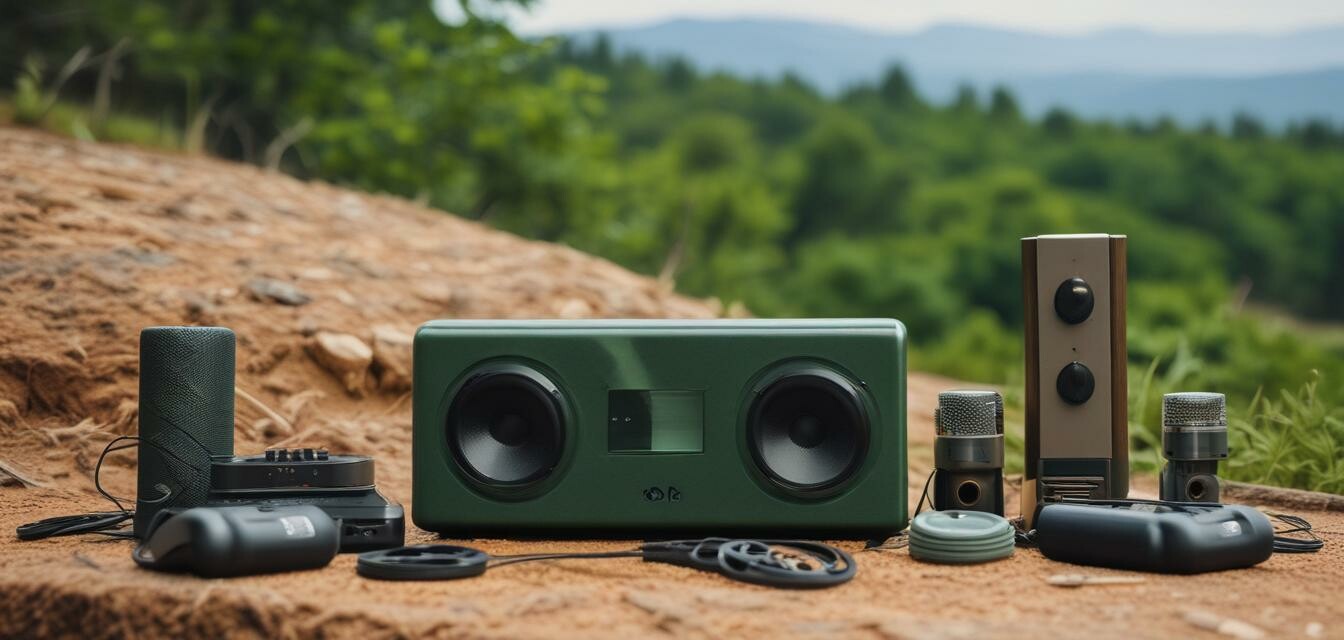
The Sustainability Movement in Audio Equipment
Key Takeaways
- The audio equipment industry is embracing sustainability through eco-friendly products.
- Manufacturers are adopting greener practices, such as energy-efficient production and recyclable materials.
- Consumer preferences are shifting towards brands committed to sustainability.
- The trend is creating new market opportunities and fostering innovation.
The audio equipment industry is undergoing a significant transformation as the demand for sustainable practices and eco-friendly products continues to grow. Consumers are increasingly aware of their purchasing decisions and how they impact the environment. This shift is prompting manufacturers to rethink their processes and product designs. In this article, we’ll explore how the sustainability movement is shaping the audio equipment landscape, highlighting key practices and trends that are defining the future.
Why Sustainability Matters in Audio Equipment
The sustainability movement is more than just a trend; it's a response to increasing environmental issues and consumer demands. Here are some reasons why sustainability is crucial in the audio equipment industry:
- Environmental Impact: The production and disposal of audio equipment can lead to significant environmental challenges, including pollution and waste.
- Consumer Demand: Today’s consumers are more environmentally conscious and prefer brands that are committed to sustainable practices.
- Regulations: Governments are introducing stricter regulations on waste and emissions, prompting companies to adopt eco-friendly practices to comply.
How the Audio Industry is Going Green
Many audio equipment manufacturers are implementing sustainable practices. Here's a look at how the industry is contributing to a greener future:
| Practice | Description |
|---|---|
| Eco-Friendly Materials | Using sustainable and recyclable materials in product design and packaging. |
| Energy-Efficient Manufacturing | Adopting technologies that reduce energy consumption during production. |
| Waste Reduction | Implementing initiatives to minimize waste throughout the manufacturing process. |
| Product Longevity | Designing products that are durable and can be easily repaired or recycled. |
Innovative Materials in Audio Equipment
Manufacturers are exploring new materials that are both functional and environmentally friendly. Here are some examples:
- Bamboo: A renewable resource used for speaker cabinets and other components.
- Recycled Plastics: Utilizing recycled materials for speaker housings helps reduce waste.
- Organic Fabrics: Eco-friendly fabrics for speaker covers, reducing chemical usage in production.
The Role of Consumers in Promoting Sustainability
Consumers play a vital role in promoting sustainability within the audio equipment market. Here are some ways in which consumer choices can have an impact:
- Choosing brands that prioritize sustainability in their production.
- Opting for products made from recycled or eco-friendly materials.
- Supporting companies that offer recycling programs for old equipment.
Future Trends in Sustainable Audio Equipment
As the industry evolves, several trends are emerging in the realm of sustainable audio equipment:
| Trend | Impact |
|---|---|
| Smart Devices | Integration of energy-saving features and remote control for better resource management. |
| Sustainable Supply Chain | Focus on reducing the environmental impact at all levels of the supply chain. |
| Educational Campaigns | Raising awareness about sustainable practices in the audio equipment segment. |
| Longer Warranties | Encouraging consumers to keep products longer, reducing waste. |
Possible Challenges
While the sustainability movement offers numerous benefits, it is also met with challenges:
Pros
- Enhances brand image and consumer loyalty.
- Can lead to cost savings in the long term through efficient practices.
- Attracts a growing segment of eco-conscious customers.
Cons
- Initial cost of adopting sustainable practices can be high.
- Innovation may require time and investment.
- Consumer education is necessary to promote understanding of sustainable products.
Conclusion
The sustainability movement is steadily gaining momentum in the audio equipment industry. With consumers prioritizing eco-friendly practices and manufacturers responding with innovative solutions, the future looks promising. It’s crucial for consumers to actively participate in this change by choosing products that align with sustainable values. As we continue to witness the evolution of audio equipment, the emphasis on sustainability will not only reshape how products are made but also how they are consumed.
Stay Updated with the Latest Trends
To learn more about the latest trends in the speaker industry, explore our article on News and Trends. For those looking to enhance their listening experience sustainably, don't miss out on our Bluetooth Speakers guide which highlights eco-friendly options! You can also check our Buying Guides to help navigate the best sustainable products available.